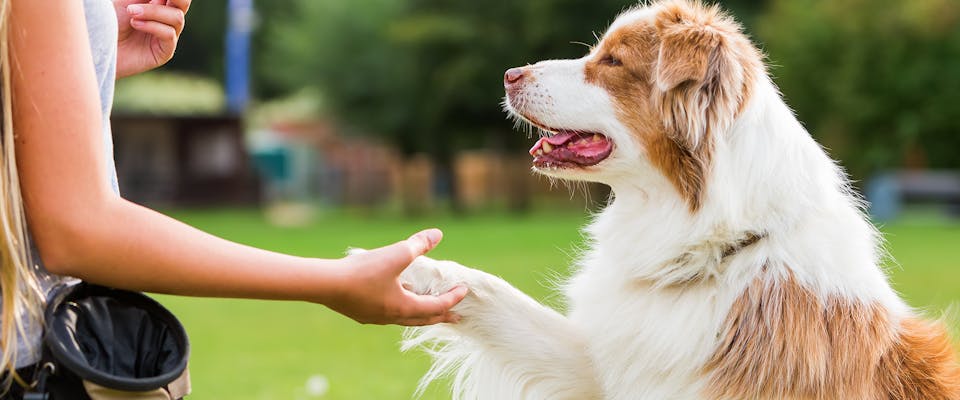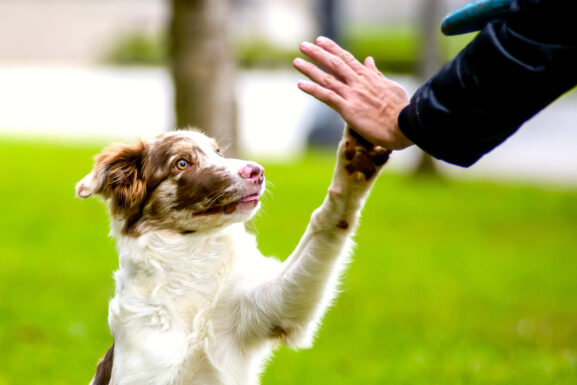Dog training
Strengthen our bond



:max_bytes(150000):strip_icc():format(webp)/jump--992416282-5c4a07efc9e77c000110c9a3.jpg)

When you have a trusting, cooperative relationship with an animal (whether it’s a dog, cat, parrot, horse or other animal), you have his respect, and he’ll want to spend time with you and work with you. A good trainer does not stand behind training methods that use excessive force, threats, fear, intimidation, pain or dominance. Training based on such aversive methods damages any sort of trusting relationship you might develop with the animal.
Relationship-based training is effective for either teaching new behaviors or changing current behavior for any physically and mentally healthy animal. By reinforcing behaviors you like and want to continue seeing, you set the animal up for success. Regardless of an animal’s age and past experiences, such ethical training methods give the animal the best chance for living happily and comfortably in our hectic human world.
It is also important to understand that every interaction is a learning experience, so every time you interact with your pets you are training them, whether or not you intend to. Relationship-based training is a lifestyle — a constant dialog with your pets, rather than a one-way issuing of commands that only occurs in structured training sessions. So instead of waiting for the occasional chance to work on modifying the animal’s behavior, it’s better to be aware of every opportunity to arrange your pet’s environment to reinforce the behaviors you want.